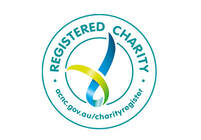our story
The idea for Bottle for Botol was born in Bali in 2013, when Australian volunteers Christine Parfitt and Chris Kemp saw first-hand how the plastic waste problem was impacting the beaches and ocean around Bali.
I was living in West Bali in 2012 working in turtle conservation when I met an extraordinary teacher - Pak Yasa - and his students. They were patrolling the local beach hoping to witness a turtle laying eggs. I was so inspired by this group that I started joining all their conservation activities. It was incredible! But I soon learnt that tackling plastic waste wasn't something they'd thought about ...
- Christine, 2018
Pak Yasa and the students were growing seedlings, planting mangroves, composting all their organics, conducting beach cleanups and training hard to win the local bird watching competitions. The environment club was 300-students strong and they would voluntarily come into school on a Sunday to learn and contribute. Winning a bird watching competition against university students, they used their prize money to buy more binoculars and grow their bird watching group.
One day when out bird watching with them, I saw a student throw a crisp packet into the jungle. I said nothing. A little later after lunch, I watched a teacher ask the students to gather all their plastic waste. I thought "wow, my chats about plastic are finally getting somewhere" only to hear the teacher ask a student "have you got a cigarette lighter?" I watched in horror as they lit fire to all that plastic pollution right next to a beautiful river in the middle of the jungle...
I started chatting to Pak Yasa about plastic pollution and it's impacts on birds and marine life. Neither he, nor his students knew anything about this global issue. We began discussing ideas for reducing plastic waste at the school and with the help of fellow volunteer Chris, together we developed an eight-lesson education program that has become the basis of Bottle for Botol today. We ran a pilot program partnering Pak Yasa’s school, SMPN 1 Mendoyo with Chris’s former school, Billanook College in Melbourne. We gave the canteen refillable water dispensers and students stainless steel water bottles so they could purchase water refills instead of plastic cups of water at the canteen. The pilot was a huge success, with Billanook College selling enough bottles to donate one to every student and staff member at SMPN 1 Mendoyo. Pak Yasa's school still participates in the program and has now stopped selling all sorts of plastic wrapped goods.
The program then grew rapidly ....
One day when out bird watching with them, I saw a student throw a crisp packet into the jungle. I said nothing. A little later after lunch, I watched a teacher ask the students to gather all their plastic waste. I thought "wow, my chats about plastic are finally getting somewhere" only to hear the teacher ask a student "have you got a cigarette lighter?" I watched in horror as they lit fire to all that plastic pollution right next to a beautiful river in the middle of the jungle...
I started chatting to Pak Yasa about plastic pollution and it's impacts on birds and marine life. Neither he, nor his students knew anything about this global issue. We began discussing ideas for reducing plastic waste at the school and with the help of fellow volunteer Chris, together we developed an eight-lesson education program that has become the basis of Bottle for Botol today. We ran a pilot program partnering Pak Yasa’s school, SMPN 1 Mendoyo with Chris’s former school, Billanook College in Melbourne. We gave the canteen refillable water dispensers and students stainless steel water bottles so they could purchase water refills instead of plastic cups of water at the canteen. The pilot was a huge success, with Billanook College selling enough bottles to donate one to every student and staff member at SMPN 1 Mendoyo. Pak Yasa's school still participates in the program and has now stopped selling all sorts of plastic wrapped goods.
The program then grew rapidly ....
As a teacher, I can only educate children, change their mindset, that we have to take care of nature.
If not us, then who? If not now, then when?
Our earth is already affected by plastic, when plastic is thrown in the river it goes to the sea ... this rubbish in the ocean is going to negatively affect us all ... We have to start now, all together, everyone around the world. We cannot get rid of plastic but we can reduce it."
- Pak Yasa, 2015


